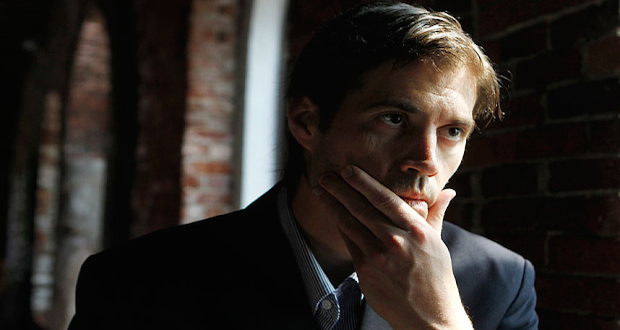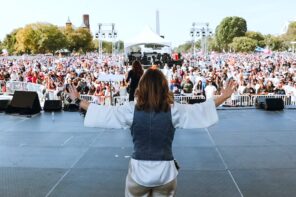One of many of the unbecoming habits of career non-believers is the mockery of prayer. From citing research studies about the inefficacy of prayer to accusing those who pray of narcissism to believe that a god of any significance would care to listen to them, prayer is one of the primary targets of those who dismiss the religious.
And while I’ve admittedly rolled my eyes at proclamations of, “Prayer works!” when people experience what looks like arbitrary good luck, a letter from slain photojournalist James Foley to his alma mater, Marquette University, on the power of prayer made me reconsider my silent dismissal of the practice.
Written during his 2011 captivity in Libya, the letter sheds light on how prayer functioned as an instrument of hope in an uncertain time. Of his mother, he writes, “I prayed she’d know I was OK. I prayed I could communicate through some cosmic reach of the universe to her. I began to pray the rosary. It was what my mother and grandmother would have prayed.”
What’s evident is that Foley prays primarily for the benefit of others rather than for himself, a much overlooked aspect of both personal and corporate prayer. When he speaks to his mother by phone from Libya, she asks if he has felt the prayers coming from his home as well. He tells her that he has felt them and reports, “Maybe it was others’ prayers strengthening me, keeping me afloat.”
This is precisely the kind of hope that prayer can inspire that should become central to the understanding of it for those of us who do not engage in prayer. Though the old aphorism that “There are no atheists in foxholes” isn’t just untrue but is also offensive to non-believers, there’s still something to be said for the idea people in need might be more inclined to prayer than others if they have some existing belief.
The prayers that were going back and forth between Libya in 2011 and Foley’s family and community were a silent but deeply felt exchange of love. Whether it’s supernatural or not is immaterial. And while Foley’s captivity in Syria was decidedly more grim, we can hope that the “cosmic reach of the universe” penetrated the fortifications of the impossibly cruel ISIS.
It would be vulgar to indulge in speculative fiction that claims James Foley was praying during what are now his famous last moments on Earth. Despite good intentions, it was somewhat off-putting when Frank Weathers at Patheos described Foley as a Christian martyr in his death. Not only because he was killed explicitly for his nationality and not for his religion, but also because the prospect of the hellscape that is the battleground on which ISIS fights becoming a destination for competitive martyrdom can do no one any good.
In the absence of any evidence, we cannot know whether James Foley maintained his religious faith throughout the nightmarish ordeal. But one can hope that whatever sense he had that he was prayed for, that he was loved from afar, and that his spirit was present with them in absentia did stay with him—and that it remains with his loved ones today.
In describing how he and a colleague prayed together, he writes “It felt energizing to speak our weaknesses and hopes together, as if in a conversation with God, rather than silently and alone.” If prayer can break through the despair of silence and solitude for those in need or trouble, then prayer works indeed.





